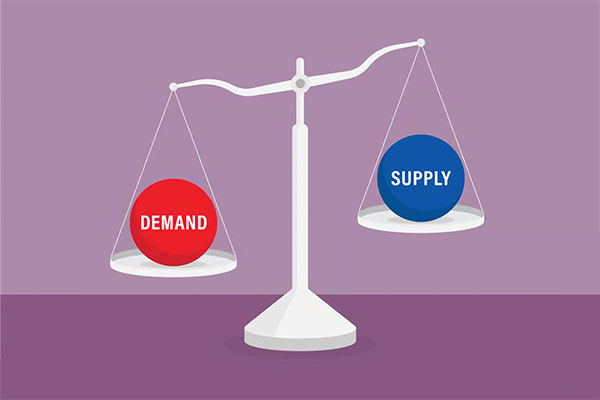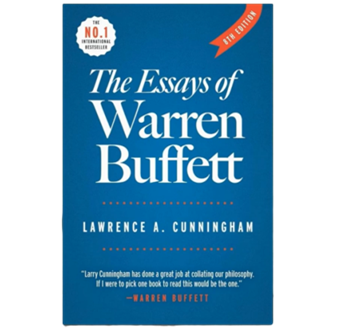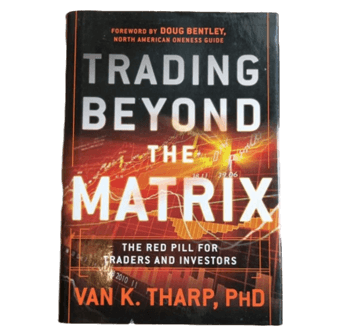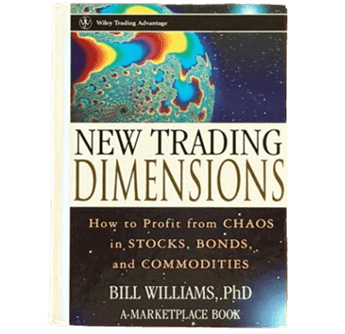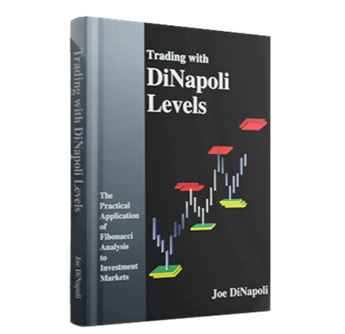
When most traders search for guidance, they often expect strategies, charts, and technical analysis. Mark Douglas, however, approached trading from a completely different angle. In Trading in the Zone, he argued that success in the markets is not determined by finding a flawless strategy but by mastering one's mindset. The book has since become a cornerstone in trading psychology, transforming the way both beginners and seasoned professionals view the craft.
Rather than promising a "holy grail" trading system, Trading in the Zone highlights the importance of consistency, discipline, and emotional control. Douglas's insights resonate because they address the reality of trading—markets are uncertain, outcomes are probabilistic, and our biggest enemy is often ourselves.
Breaking Illusions: Trading in the Zone on Market Uncertainty
A core theme of Trading in the Zone is the rejection of certainty. Many traders fall into the trap of believing that patterns, signals, or strategies can predict market moves with absolute accuracy. Douglas dismantles this illusion, teaching that every trade is a unique event and no outcome can be guaranteed.
Instead, traders must embrace probability. Like a casino operator, success lies in thinking in terms of large numbers rather than individual outcomes. This book illustrates this shift in thinking, urging traders to move from a mindset of prediction to one of probabilities. This perspective reduces the emotional rollercoaster of wins and losses, replacing fear and frustration with calm objectivity.
Mind Over Markets: Lessons from Trading in the Zone
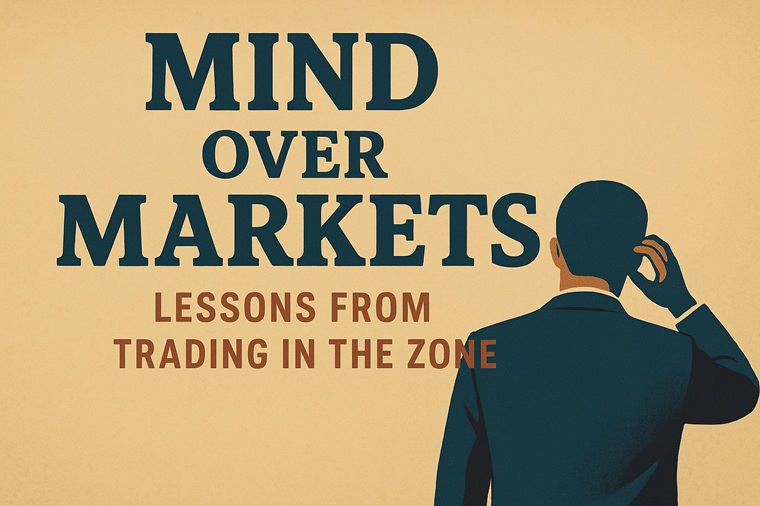
At its heart, Trading in the Zone is a guide to psychological mastery. Douglas explains that most traders already know how to enter and exit markets; their struggle lies in execution. Fear of loss, the urge for revenge trading, and overconfidence after a win can all sabotage decision-making.
Through clear examples and thought-provoking exercises, it demonstrates how beliefs shape behaviour. If a trader believes the market is "out to get them," they will trade defensively, often missing opportunities. Conversely, a trader with confidence in probability-based thinking will take consistent actions, unaffected by short-term noise.
This mental discipline is not just about staying calm. It is about rewiring how one perceives risk, opportunity, and uncertainty—three pillars that define every market experience.
Turning Theory into Practice with Trading in the Zone

What makes this book enduringly powerful is its practical application. Douglas provides traders with tools to integrate his principles into daily routines. For example, he emphasises the importance of creating trading rules and sticking to them, no matter how tempting it is to break them after a string of wins or losses.
By internalising the probabilistic mindset, traders can shift from impulsive decision-making to structured, rule-based execution. Trading in the Zone does not claim that losses will vanish—losses are inevitable—but it shows how to treat them as part of a broader statistical edge.
For many readers, this approach becomes liberating. It reframes trading from a stressful gamble into a calculated process where emotions no longer dictate outcomes.
From Fear to Freedom: The Emotional Journey in Trading in the Zone
One of the most intriguing aspects of the book is its exploration of fear. Douglas identifies fear of being wrong, fear of losing money, and fear of missing out as key barriers to consistent trading. These fears are universal, and they drive behaviours such as moving stop-loss orders, chasing trades, or refusing to exit losing positions.
By addressing these fears head-on, Trading in the Zone offers traders a path to freedom. Douglas shows that true confidence comes not from knowing what the market will do next, but from trusting one's process and edge. The moment traders detach emotionally from each outcome, they begin to experience what Douglas calls "the zone"—a state of effortless focus, clarity, and consistency.
This psychological state is not reserved for elite professionals; it is achievable for anyone who commits to reshaping their mindset.
Final Thoughts: The Legacy of Trading in the Zone
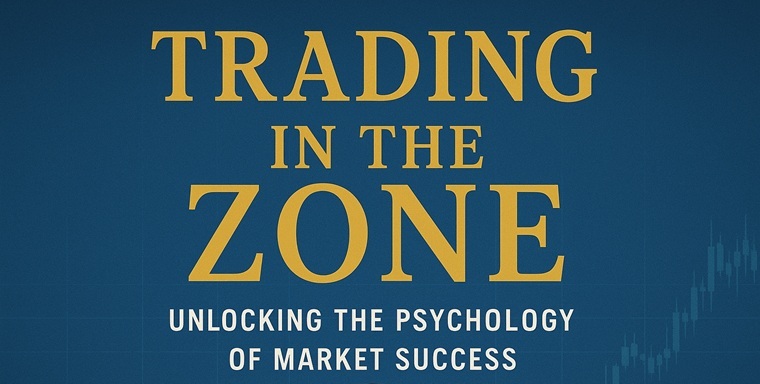
More than two decades after its publication, Trading in the Zone remains one of the most influential works in trading literature. Mark Douglas's insights have stood the test of time because they address the true challenge of trading: not the market, but the trader.
By emphasising probabilities over predictions, discipline over impulse, and emotional control over reactive behaviour, this book provides timeless lessons for navigating uncertainty. Its teachings apply not only to trading but to decision-making in all aspects of life where risk and reward coexist.
For traders seeking consistent results, reading this book is not optional—it is essential. It continues to remind us that the market is not something to be conquered, but something to be understood. And that understanding begins within.
Disclaimer: This material is for general information purposes only and is not intended as (and should not be considered to be) financial, investment or other advice on which reliance should be placed. No opinion given in the material constitutes a recommendation by EBC or the author that any particular investment, security, transaction or investment strategy is suitable for any specific person.










